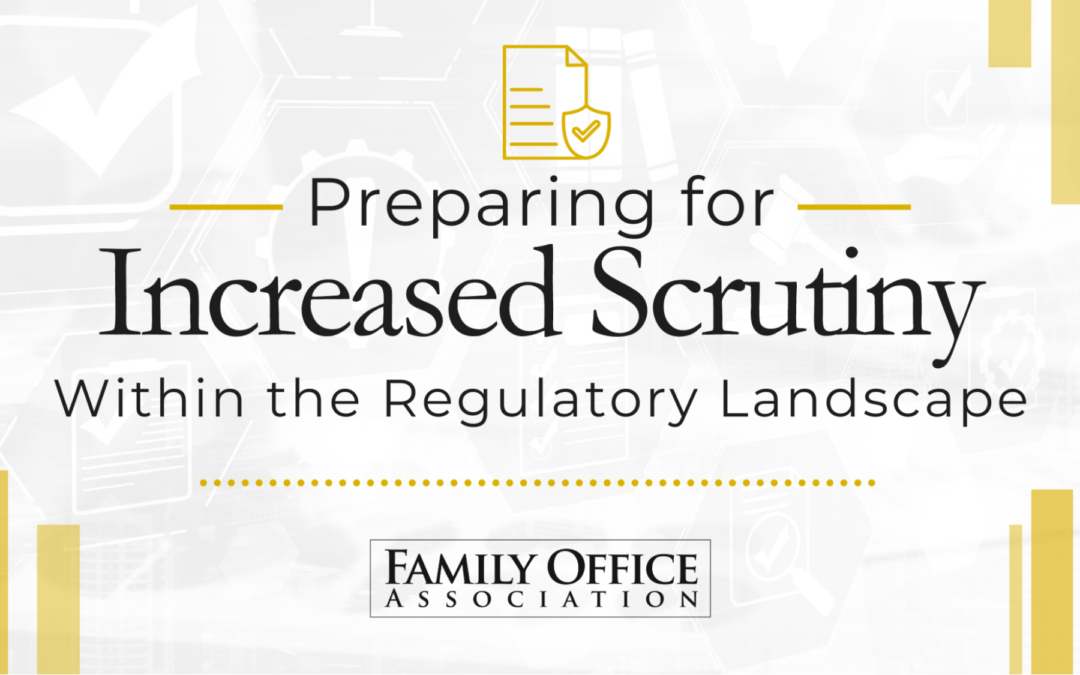In recent years, family offices have emerged as key players in the investment world, managing vast fortunes and providing comprehensive wealth management services to affluent families. However, as the prominence and complexity of family offices grow, so does the scrutiny from regulatory bodies.
The Current Regulatory Landscape
Family offices have traditionally operated with a certain degree of autonomy and discretion, often enjoying exemptions from certain regulatory requirements that apply to other financial institutions. However, this leniency is gradually eroding as regulators tighten their grip on the financial industry worldwide.
In the United States, for example, the Securities and Exchange Commission (SEC) has been ramping up its oversight of family offices, particularly following high-profile cases such as the Archegos Capital meltdown. The SEC is increasingly focused on ensuring family offices comply with securities laws, anti-money laundering regulations, and disclosure requirements.
Similarly, in Europe, regulatory bodies like the European Securities and Markets Authority (ESMA) are paying closer attention to family offices’ activities, especially as they expand their operations across borders. The expansion of global regulations, such as the General Data Protection Regulation (GDPR) and the Markets in Financial Instruments Directive (MiFID II), further complicates compliance for family offices with international operations.
What Is Driving Increased Regulation?
Several factors contribute to the growing regulatory scrutiny faced by family offices, starting with the complexity of investments. As family offices diversify their investment portfolios and engage in increasingly complex financial transactions, regulators are keen to ensure that they understand the risks involved and that investors are adequately protected. There are also systematic risks to be aware of. The interconnectedness of financial markets means that the failure of a single-family office or a significant loss incurred by one could have ripple effects throughout the broader financial system. Regulators are motivated to prevent such systemic risks by imposing stricter oversight.
Additionally, there is a growing demand for transparency and accountability in the financial industry, driven by both regulators and investors. Family offices are under pressure to provide more detailed disclosures regarding their investment strategies, risk management practices, and potential conflicts of interest. Lastly, family offices are staying aware of technological advancements. The rapid advancement of technology has created new challenges and opportunities for family offices. Regulators are increasingly concerned about issues such as cybersecurity, data privacy, and the use of algorithmic trading systems, prompting them to introduce regulations to mitigate associated risks.
Steps Toward Preparing for the Future
Given the trend towards increased regulation, family offices must take proactive steps to ensure compliance and mitigate regulatory risks.
- Stay Informed
Family offices should closely monitor regulatory developments at both the national and international levels, staying up-to-date on new laws, guidelines, and enforcement actions that may impact their operations.
- Enhance Compliance Practices
Establishing robust compliance programs that encompass all relevant regulatory requirements, including securities laws, anti-money laundering, data protection, and tax compliance, is essential. This may involve appointing dedicated compliance officers, conducting regular audits, and implementing appropriate internal controls.
- Adopt Technology Solutions
Leveraging technology can help streamline compliance processes and improve regulatory reporting. Family offices should invest in software tools that facilitate data management, monitoring, and regulatory filings while ensuring data security and privacy.
- Engage with Regulators
Building constructive relationships with regulators can help family offices gain insights into regulatory expectations and navigate compliance challenges more effectively. Proactive engagement may involve participating in industry forums, attending regulatory seminars, and seeking guidance from legal and compliance experts.
The regulatory environment surrounding family offices is evolving rapidly, with regulators worldwide increasing their scrutiny of these entities. Family offices must prioritize compliance, transparency, and risk management to navigate this complex landscape successfully.
If you have further questions or wish to enhance your family office, contact the team at Family Office Association.

